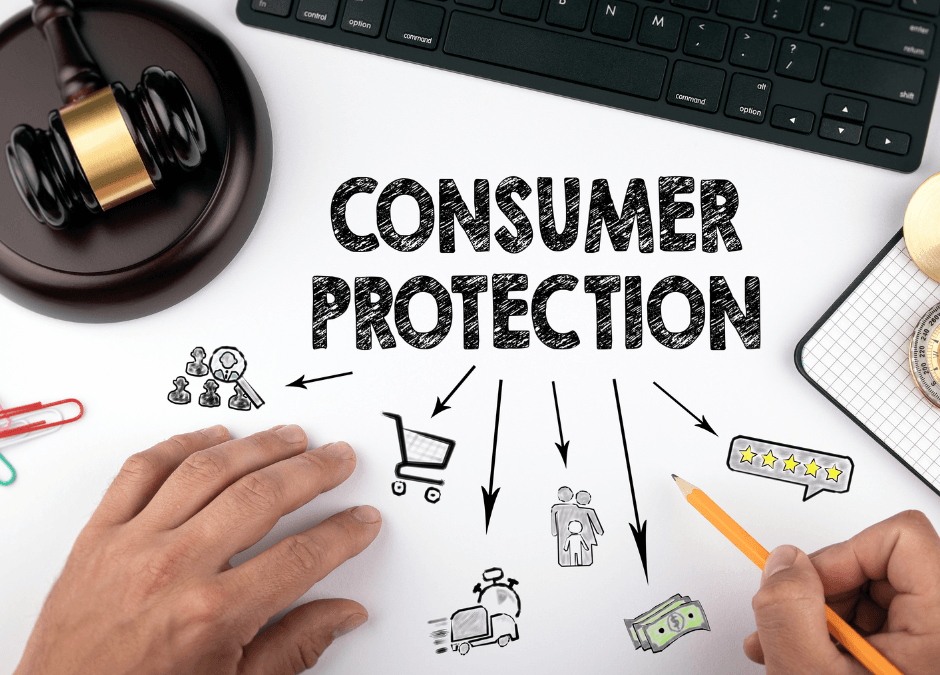When you sell goods or services to individual customers rather than other businesses, you’re entering into consumer contracts — and these come with specific legal obligations.
The Consumer Rights Act 2015 is the main piece of legislation governing contracts between businesses and individual consumers in the UK. It was introduced to simplify and consolidate earlier laws and applies to all consumer contracts for goods, services, and even digital content.
In simple terms, it sets out what consumers are legally entitled to expect — and what businesses must do when those expectations aren’t met.
Under the Act:
- Goods must be of satisfactory quality, fit for purpose, and as described.
- Services must be carried out with reasonable care and skill, at a reasonable price, and within a reasonable time (unless agreed otherwise).
- Digital content (such as downloads, apps, or online software) must be of satisfactory quality, fit for purpose, and as described, just like physical goods.
If these rights are breached, consumers are entitled to remedies such as a repair, replacement, repeat performance, or refund, depending on the circumstances. Having a clear process laid out in your terms and conditions is crucial, not only to ensure you are abiding by the law but it serves as a reminder of what you must do.
The Act also protects consumers from unfair contract terms, meaning any clause that creates a significant imbalance between the business and the consumer — to the consumer’s detriment — may be considered unenforceable.
What Is a Consumer?
The Consumer Rights Act 2015 defines a consumer as:
“An individual acting for purposes that are wholly or mainly outside that individual’s trade, business, craft or profession.”
In practice, this means that if you sell to an individual person (rather than a company or someone buying for business use), you are dealing with a consumer — and consumer protection law applies.
So, a homeowner hiring a builder, a person buying a piece of furniture, or someone purchasing an online course for personal use would all be classed as consumers.
Even if the individual is self-employed or runs a business, if they buy something for personal use, they are still a consumer under the law, however despite often there being confusion a sole trader is NOT a consumer if they are purchasing something during the course of their business.
Unlike business-to-business (B2B) agreements, the law is clear at that consumer contracts must not include unfair terms or unclear information.
Getting it wrong can lead to disputes, complaints, or even action from Trading Standards.
Here’s how to write a compliant, professional contract for consumer clients and make sure you’re meeting your obligations under UK consumer law
1. Be Clear, Transparent and Easy to Understand
Consumer law requires that your terms are “plain, intelligible and transparent.”
That means:
- Avoiding complex legal jargon
- Writing in short, clear sentences
- Making key terms — like pricing, cancellation rights, and delivery times — obvious and easy to find
Hidden or ambiguous terms can be ruled unenforceable if they disadvantage the consumer.
2. Include the Legally Required Information
Your contract or terms must include certain details, especially if you sell online or off-premises (e.g. at the client’s home).
Under the Consumer Contracts (Information, Cancellation and Additional Charges) Regulations 2013, you must tell the client:
- Your business name, address and contact details
- A clear description of the goods or services
- Total price, including VAT and any additional costs
- Timescales for performance or delivery
- Payment terms
- Cancellation rights (and any exceptions)
- Details of how to complain or resolve disputes
3. Respect the Consumer’s Right to Cancel
In most cases, consumers have a 14-day cooling-off period when buying online or signing contracts away from your premises.
You must:
- Tell them clearly about this right before they agree
- Provide a model cancellation form
- Avoid starting work before the cooling-off period ends unless they’ve given written consent
If you don’t tell them about their right to cancel, they can cancel at any time within 12 months — even if you’ve already completed the work.
4. Avoid Unfair Terms
The Consumer Rights Act 2015 prohibits unfair contract terms — those that create a significant imbalance between you and your client.
Examples include:
- Hidden fees or cancellation charges
- Clauses that allow you to change the price or service without notice
- Terms that limit your liability excessively
If a term is found to be unfair, it’s not legally binding, and it can damage your business’s credibility and be costly.
5. Provide a Fair Complaints and Refund Policy
You must handle complaints fairly and in line with the consumer’s statutory rights.
For goods, services, and digital content, consumers have the right to:
- A repair or replacement for faulty goods
- Repeat performance or a price reduction for substandard services
- A refund in certain circumstances
Make sure your contract reflects these rights and doesn’t attempt to exclude or restrict them.
Get Professional Help When Drafting
Even simple consumer contracts must meet strict legal standards. A well-written contract:
- Protects your business
- Builds consumer trust
- Reduces disputes
- Demonstrates compliance with UK law
At BEB Contract & Legal Services, we specialise in drafting clear, compliant contracts for businesses that sell to consumers.
We’ll ensure your terms reflect your processes, meet all regulatory requirements, and protect your interests while staying fair and transparent.

